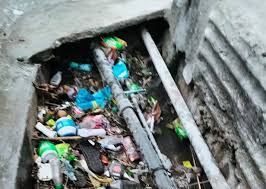Community Service for Minor Offenders: A Solution to Ghana’s Sanitation Crisis-Environmental Guide Managing Editor Writes
By involving those who commit minor offenses in cleaning activities, Ghana could address sanitation issues while offering offenders a constructive means of reintegration.

Ghana is grappling with a pressing sanitation crisis, with waste clogging gutters, polluting streets, and affecting public health. An alternative approach to sentencing minor offenders could provide a practical, cost-effective solution to this problem: assigning community service duties to clean up public spaces rather than sending them to prison.
By involving those who commit minor offenses in cleaning activities, Ghana could address sanitation issues while offering offenders a constructive means of reintegration.
- Advertisement -
Currently, the prison system is overcrowded, and housing inmates comes at a high cost to the state. Minor offenders serving prison time often face challenges when reentering society, making it harder for them to find productive roles.
- Advertisement -
Using community service as an alternative not only saves resources but also offers a more rehabilitative approach, allowing offenders to contribute positively to their communities.
Community service could encompass various tasks critical to improving Ghana’s public hygiene. Offenders could work on clearing blocked drains, maintaining markets, cleaning parks, and participating in waste collection and sorting initiatives.
This would provide immediate, visible improvements to local areas, while giving offenders a sense of responsibility and pride in their communities. It could also reduce instances of repeat offenses, as offenders would have a chance to engage in meaningful work that helps them feel connected to their communities.
- Advertisement -
Moreover, regular cleanup drives led by community service participants could foster a culture of cleanliness and accountability. Over time, these efforts could encourage citizens to take more responsibility for their surroundings, contributing to a nationwide shift towards better sanitation practices.
Schools, community organizations, and local governments could even partner with community service programs to expand public awareness and involvement in cleanliness efforts.
For such a program to succeed, it would require effective management, adequate resources, and government commitment. The Ministry of Sanitation, together with local assemblies, could oversee the logistics and training required for participants.
Additionally, partnerships with NGOs focused on sanitation and environmental health could bolster the program, providing educational resources and tools to ensure the work is done effectively.
In the long run, this approach could help transform Ghana’s sanitation landscape. With consistent maintenance, there would be fewer choked drains, reduced waste buildup, and ultimately, better public health outcomes. Community service would also provide minor offenders with the opportunity to rehabilitate in a positive environment, supporting their transition back into society as productive citizens.
Source:enviromentalguidenews.com
- Advertisement -



